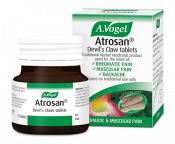An introduction to neck and shoulder pain
Your neck and shoulders are closely bound together by muscles, bones, ligaments and nerves. These intricate connections mean that often pain in one area spreads to the next.
Neck and shoulder pain is part of a collection of ailments which people may refer to as neck pain or a stiff neck. Most of the time, these conditions arise due to neck strain or damage to muscles in the neck.
What are the causes of neck and shoulder pain?
There is a wide range of reasons why you may be experiencing neck and shoulder pain. Unless there is a specific event or incident which you can attribute to the start of the pain, such as recently receiving an injury to your neck and shoulder, the cause of your pain can be mystifying.
Causes of neck and shoulder pain include:
- Soft tissue damage – this is the most common cause of neck and shoulder pain, and includes strains and sprains. The soft tissue structures include muscles, tendons and ligaments. They are easily injured by lying in an awkward position in bed, or from a whiplash type of injury where the neck and shoulders are violently thrown or jerked. Soft tissue damage tends to resolve itself within a week, although more severe injuries, such as when some tissue has been ruptured will take longer and may need medical attention
- Rotator cuff injury – there is a group of tendons which support the shoulder and allow the muscles to give flexibility and a range of movement. These tendons can be damaged when lifting heavy objects, particularly if biased to one side of the body, or in some sporting events such as tennis. This leads to a reduction in movement as well as pain in the neck and shoulder which may sometimes be described as a frozen shoulder
- Broken collar bone or shoulder blade – breaking either of these bones will result in intense pain in the shoulder and neck area. An X-ray will be needed to determine if a fracture is present
- Osteoarthritis – this is also known as degenerative arthritis or ‘wear-and-tear’ arthritis, when the cartilage surrounding the bones is worn down. This can happen in the joints which connect the shoulder and neck, causing pain and inflammation
- Trapped nerve – this occurs when there is direct pressure on a nerve. It can cause pain, numbness and weakness around the affected area as well as the arms, hands or fingers
- Flu – this can often lead to general aches and pains, including pain in the shoulder and neck area. This is because the immune system causes inflammation in the joints when it is trying to fight off the infection.
What are the symptoms of neck and shoulder pain?
Not everyone complaining of neck and shoulder pain will experience the same type of pain.
- For some it will be a sharp twinge in a very specific area, for others a dull ache, spreading across a larger area. The type of pain you feel will depend on how you have hurt your shoulders and neck. Muscular pain is often described as a sharp twinge when you stretch a muscle in a particular way, while a dull ache is usually the result of flu or other viral infection
- If you experience numbness or a tingling in your arms along with your sore shoulder and neck, this may be an indication of a trapped nerve
- If you have broken a bone or have ruptured a ligament, this can cause your bones to move. You may notice changes in your bone structure if you have sustained this kind of injury
- You may experience stiffness in your shoulder and neck. This may be the result of a reluctance to move because it increases the pain, or it could be a physical inability to turn your neck because of muscle or nerve damage. It is important to distinguish between these two types of stiffness in order to establish the correct type of treatment.
What treatments are there?
The most effective treatment for you will depend on the root of your shoulder and neck pain. Although the symptom may be the same, the treatment for a trapped nerve and that for a broken bone will be very different.
If you know that your neck and shoulder pain is purely mild soft tissue damage or a strained neck muscle from sitting in the car too long, or sleeping without a pillow, then this can be treated at home. Try to keep your neck moving and relieve the pain with herbal remedies such as Atrogel Arnica gel. For more general joint pain, you may find Devil’s Claw to be effective.
For severe or lasting pain, particularly if your mobility or sense of touch is affected, it is important to seek medical advice. Your doctor will be able to work with you to find the cause of your pain and find an appropriate treatment.








